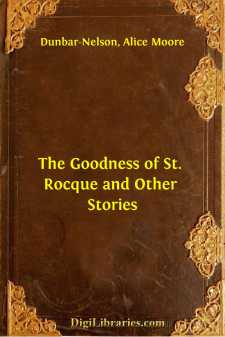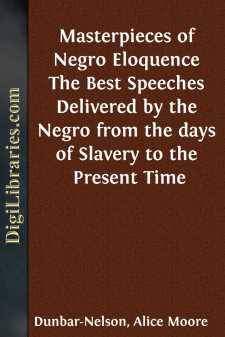Categories
- Antiques & Collectibles 13
- Architecture 36
- Art 48
- Bibles 22
- Biography & Autobiography 813
- Body, Mind & Spirit 142
- Business & Economics 28
- Children's Books 14
- Children's Fiction 11
- Computers 4
- Cooking 94
- Crafts & Hobbies 4
- Drama 346
- Education 46
- Family & Relationships 57
- Fiction 11829
- Games 19
- Gardening 17
- Health & Fitness 34
- History 1377
- House & Home 1
- Humor 147
- Juvenile Fiction 1873
- Juvenile Nonfiction 202
- Language Arts & Disciplines 88
- Law 16
- Literary Collections 686
- Literary Criticism 179
- Mathematics 13
- Medical 41
- Music 40
- Nature 179
- Non-Classifiable 1768
- Performing Arts 7
- Periodicals 1453
- Philosophy 64
- Photography 2
- Poetry 896
- Political Science 203
- Psychology 42
- Reference 154
- Religion 513
- Science 126
- Self-Help 84
- Social Science 81
- Sports & Recreation 34
- Study Aids 3
- Technology & Engineering 59
- Transportation 23
- Travel 463
- True Crime 29
Alice Moore Dunbar-Nelson
Alice Moore Dunbar-Nelson (1875–1935) was an influential African American poet, essayist, and activist associated with the Harlem Renaissance. She published works such as "Violets and Other Tales" (1895), a collection of poetry and short stories that reflected her experiences as a woman of mixed race in America. Dunbar-Nelson was also an advocate for women's rights and civil rights, using her writings and public speaking to challenge racial and gender inequality. In addition to her literary work, she was a teacher and lecturer, actively involved in the National Association for the Advancement of Colored People (NAACP).
Author's Books:
Sort by:
VIOLETS. I. "And she tied a bunch of violets with a tress of her pretty brown hair." She sat in the yellow glow of the lamplight softly humming these words. It was Easter evening, and the newly risen spring world was slowly sinking to a gentle, rosy, opalescent slumber, sweetly tired of the joy which had pervaded it all day. For in the dawn of the perfect morn, it had arisen, stretched out its...
more...
THE GOODNESS OF SAINT ROCQUE Manuela was tall and slender and graceful, and once you knew her the lithe form could never be mistaken. She walked with the easy spring that comes from a perfectly arched foot. To-day she swept swiftly down Marais Street, casting a quick glance here and there from under her heavy veil as if she feared she was being followed. If you had peered under the veil, you would have...
more...
PREFACE It seems eminently fitting and proper in this year, the fiftieth anniversary of the Proclamation of Emancipation that the Negro should give pause and look around him at the things which he has done, those which he might have done, and those which he intends to do. We pause, just at the beginning of another half century, taking stock of past achievements, present conditions, future...
more...




